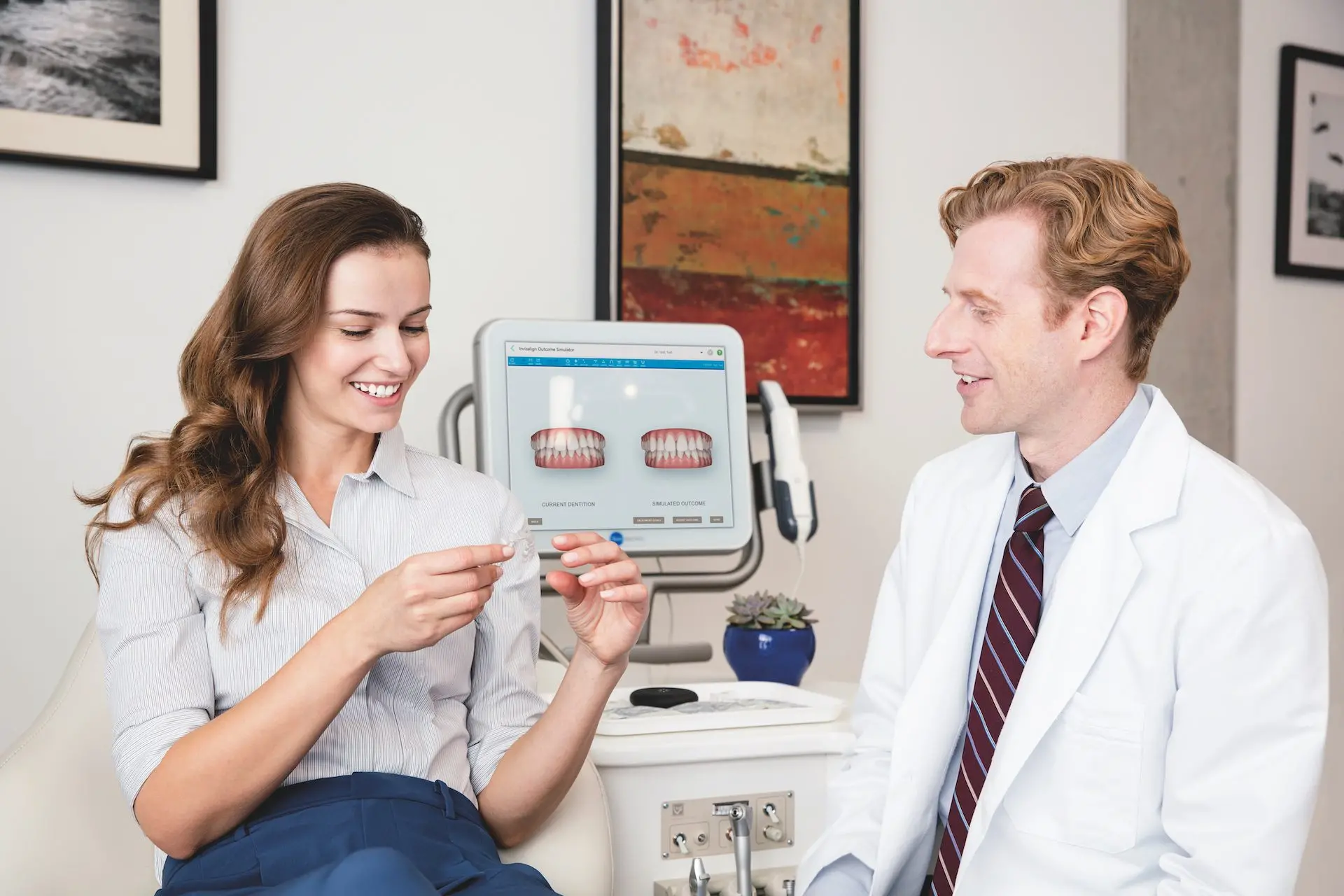
Getting used to dental implants
Preparing for next steps
With implants, it’s common for your journey to begin with other forms of care. How long it takes for you to get comfortable with your implants depends on your unique treatment plan, so here’s what you need to know to stay prepared:
Common pre-work procedures
When getting dental implants, you may need:- Extractions to remove teeth
- Bone grafting (a procedure to restore your jaw bone)
- Same-day placement as your extractions (if your body allows)
Healing from implant placement
If your oral health or bone health doesn’t allow for same-day placement as your extractions, which is completely normal, you’ll need an additional visit to place your implants. During this procedure, you’ll have the titanium implants placed in your jaw bone. After the procedure, we’ll give you’ll go home with a healing cap and temporary tooth or a healing denture, so you’re never without your smile.Complete your smile
It can take 4 or more months to completely heal because your implant is bonding to your bone. After it’s fully bonded, you’ll be ready for your final crown or denture. Once we’ve placed either, your new smile will function similar to your original smile, which means yearly checkups and good oral hygiene are a must for your daily routine.Healing your smile
Within 24 hours after you’ve had a pre-treatment surgery or your implant placement surgery, your rest and recovery is top priority. Prepare the following beforehand so you’re comfortable when you need it the most:
Stay nourished
After a procedure, you may not feel like eating. Stay healthy with quick meals such as smoothies, protein shakes, mashed potatoes, eggs, yogurt and juice.
Avoid: spicy food, hot tea or coffee, extremely cold foods and alcoholic beverages.
Stock up on supplies
Some swelling, bruising or run-off from your mouth can be normal at this stage of healing. Prepare towels, face cloths, gauze and ice packs as recommended by your doctor.
Expert insight: After 36 hours, moist heat can help reduce any lingering swelling or bruising.
Make your bed
It’s also normal to experience excess saliva from your mouth as it heals. Prepare a reclining chair or pillows on your bed to remain upright when sleeping, or follow any instructions provided your doctor.
Prep your meds
Prep medications you currently take, over the counter pain meds, antibiotics or any other meds your dentist prescribed, so they’re ready to go. Keep a cup of water near your sleeping set up too.
Need-to-know: 24 hours
In the first 24 to 72 hours after your procedure(s), do not brush your teeth, spit, smoke, rinse your mouth, exercise or use tobacco products or a straw. Skipping these will help minimize irritation, excess bleeding and the risk of infection at the area where your implants were placed.
Adjusting to dental implants
In the weeks following your placement procedure, discomfort should be behind you. When you’re ready, add these tips into your daily routine:
Let’s talk
Enjoy a secure fit and all-day wear without gels or adhesives.
Ease into eating
While the settlement of your implants can take up to 4 to 6 months to heal, within the first few weeks you’ll be able to get back to normal foods and gently brush your gums and teeth again.
Get your ZZZs
After the first 3 to 5 days of healing, you’ll be ready to sleep normally again without a recliner or pillows to prop you up.
Questions?
If these are any of your symptoms, call your local Celebrate Dental & Braces care team to set up a follow-up visit as soon as possible.
How long does it take to get dental implants?
Your implant placement procedure takes as little as a day, while healing can take up to 3 to 4 months. Getting dental implants depends on your current oral health, the health of your jaw bone and if we can place your implants on the same day as any extractions you need. For a more information on how long it will take for you to get dental implants, schedule a consultation with your local Implant expert.
What is a failed implant?
A failed implant refers to an implant that hasn’t fully bonded with your bone, meaning the bone hasn’t healed around the implant, securing it within your jaw. While this is rare, signs of a failed implant can include:
- A loose or movable implant
- Pain
- Swelling
- Infection
If you’re concerned that your dental implant hasn’t properly fused with your bone, follow-up treatment options are available. Give your local Celebrate Dental & Braces care team a call to schedule a follow-up as soon as possible so we can get you comfortable and enjoy your implants again.
What is a bone graft?
Bone grafting refers to a surgical procedure that transplants bone to restore a damaged or diseased section of your jaw bone. Bone grafting can help ensure there is enough bone to correctly place your dental implant.
How can I tell if I have an infection?
You may have an infection if you’re experiencing any of the following:
- Fever
- Discharge from the implant site
- Foul taste in your mouth
If these are any of your symptoms, call your local Celebrate Dental & Braces care team to set up a follow-up visit as soon as possible.
Explore types of dental implants
Discover which dental implant solution may be right for you based on your dental needs, budget and more.
Our Doctors’ Affiliations





